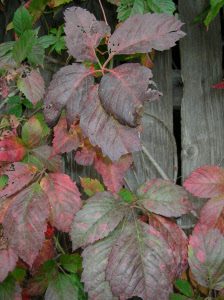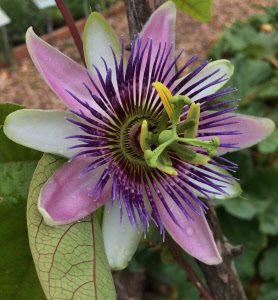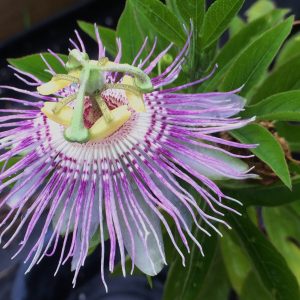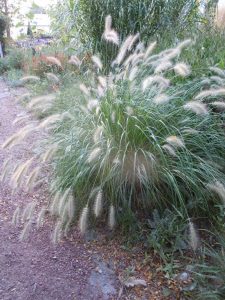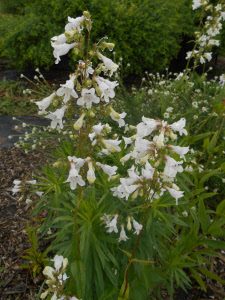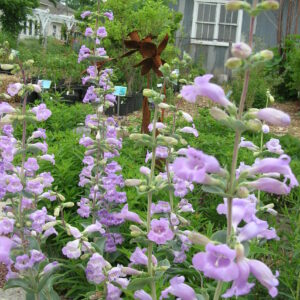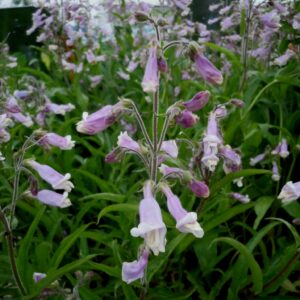Shop
Showing 545–552 of 788 results
-
Parthenium integrifolium Wild Quinine Z 3-8
Work-horse white cymes July through October
Work-horse white cymes July through October
Size: 2-3’ x 12”
Care: sun in moist well-drained soil
Native: Mass. To Georgia & Minn. To Arkansas, incl. WI
Wildlife Value: provides nectar and pollen to native bees.Seeds are fragrant when crushed. Named “quinine” because it was used to treat fevers similar to malaria. Catawabe Indians used the leaves to treat burns and the flowers to treat fever. 1st described in literature in 1732.
-
Parthenocissus quinquefolia Virginia creeper Z 3-9
Brilliant scarlet in autumn
ARCHIVED
Note: This is a plant not currently for sale. This is an archive page preserved for informational use.
Spring leaves bronzy, turn green in summer and then brilliant scarlet in autumn, with contrasting blue berries with red stems.
Size: 50’ x 10'
Care: Either sun or shade in well-drained soil
Native: Eastern No. America
Awards: England’s Royal Horticultural Society Award of Garden Merit.Parthenocissus is Greek meaning “virgin ivy.” Cultivated in American gardens since 1700’s. Sent to England by English planthunter Tradescant the Younger in the 1640’s. Grown by Jefferson.
-
Passiflora caerulea Blue passion flower Z 6-9
Exotic, large blossoms with an outer ruffle of petals and sepals
ARCHIVED
Note: This is a plant not currently for sale. This is an archive page preserved for informational use.
Exotic, large blossoms with an outer ruffle of petals and sepals; an inner disc of concentric rings of blue, white and purple filaments; and a central “antenna.” From mid-summer through fall.
Size: 15’ x 4’
Care: sun in well-drained soil
Native: So. America
Wildlife Value: Host for several butterfly caterpillars
Awards: Royal Horticultural Society Award of MeritSince at least 1753
-
Passiflora incarnata Maypop Z. 5 (with protection)-9
Abundant, extremely showy lavender and white flowers all summer then egg size yellow fruit that you can eat. Most hardy of the passionflowers.
ARCHIVED
Note: This is a plant not currently for sale. This is an archive page preserved for informational use.
Abundant, extremely showy lavender and white flowers all summer then egg size yellow fruit that you can eat. Most hardy of the passionflowers.
Size: 10-15’ x 18”
Care: sun in moist soil
Native: Eastern US
Wildlife Value: Attracts butterfliesCollected by Rev. John Banister who moved to colonial Virginia in 1678. A gunman mistakenly shot and killed him while he collected plants. Pressed specimen in Emily Dickinson’s herbarium. Dies back to ground in winter only to pop out of the ground in May, hence “Maypop.”
-
Pennisetum orientale Oriental fountain grass Z 5-10
Showy, white to pinkish inflorescences summer thru fall.
Showy, white to pinkish inflorescences summer thru fall. Richard Darke, grass guru, describes this as “One of the most striking hardy fountain grasses. Low growing, compact and exceptionally floriferous … Blooms over an unusually long period from late June through October”
Size: 2' x 2'
Care: sun in well-drained soil or moist well-drained soil. Deer resistant and drought tolerant.
Native: central & SW Asia
Awards: Elisabeth Carey Miller Botanical Garden Great Plant PicksThe plant is named for its soft inflorescences; Latin penna and seta mean feather-bristle. This species collected before 1821.
-
Penstemon digitalis Foxglove beardtongue Z 2-8
Palest of pink tubular bells in June - deadhead for rebloom. More vigorous and longer blooming than its well-known cultivar ‘Husker Red.’
ARCHIVED
Note: This is a plant not currently for sale. This is an archive page preserved for informational use.
Palest of pink tubular bells in June – deadhead for rebloom. More vigorous and longer blooming than its well-known cultivar ‘Husker Red.’
Size: 24-48” x 18”
Care: sun or part shade in fertile, well-drained soil
Native: Nebraska, Wisconsin
Wildlife Value: host for caterpillar of Baltimore Checkerspot butterfly.Penstemon is named for its five stamens, penta meaning “five” in Greek. Used medicinally by the Dakota and Pawnee – to remedy chest pains, chills and fevers. P. digitalis first sent to Europe when the son of the royal Spanish gardener sent it to Kew Botanic Garden in England, 1793.
-
Penstemon grandiflorus Large beard tongue Z 3-9 short-lived perennial that reseeds
Large pink to lavender trumpets along the 3’ stem in early summer
ARCHIVED
Note: This is a plant not currently for sale. This is an archive page preserved for informational use.
Large pink to lavender trumpets along the 3’ stem in early summer
Size: 3’ x 10”
Care: full sun in well-drained soil
Native: IL to N. Dakota, south to TX, Wisconsin
Wildlife Value: attracts Baltimore butterflyDiscovered by Thomas Nuttall, (1786-1859) who searched entire No. American continent, describing this Penstemon as “splendid and beautiful,” on his trip up the Missouri River in 1811. Cured chest pains and stomach aches for the Dakota and chills and fever for the Pawnee. Sioux made decoctions of this to remedy chills and fever and chest pain.
-
Penstemon hirsutus Downy penstemon Z. 3-9
Lavender-Pink outside and white inside funnels in June
ARCHIVED
Note: This is a plant not currently for sale. This is an archive page preserved for informational use.
Lavender-Pink outside and white inside funnels in June
Size: 20” x 12-24”
Care: sun in well-drained soil
Native: northeast North America
Wildlife Value: attracts Baltimore butterfly and feeds the Rusty patched Bumble BeePenstemon is named for its five stamens, penta meaning “five” and stemon meaning “stamen” in Greek. Penstemons are “handsome and deserving,” Bailey. P. hirsutus sent from America to England in 1758.


